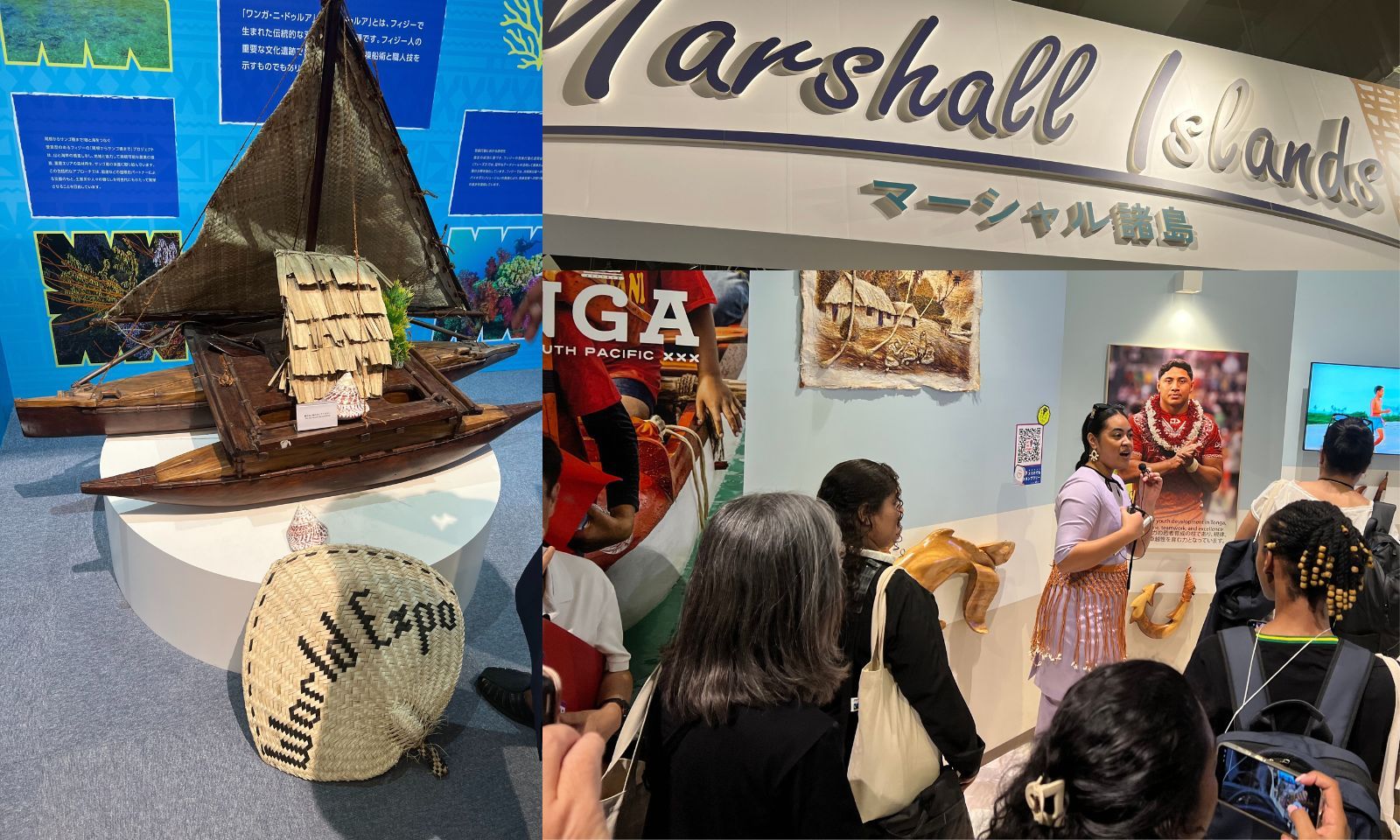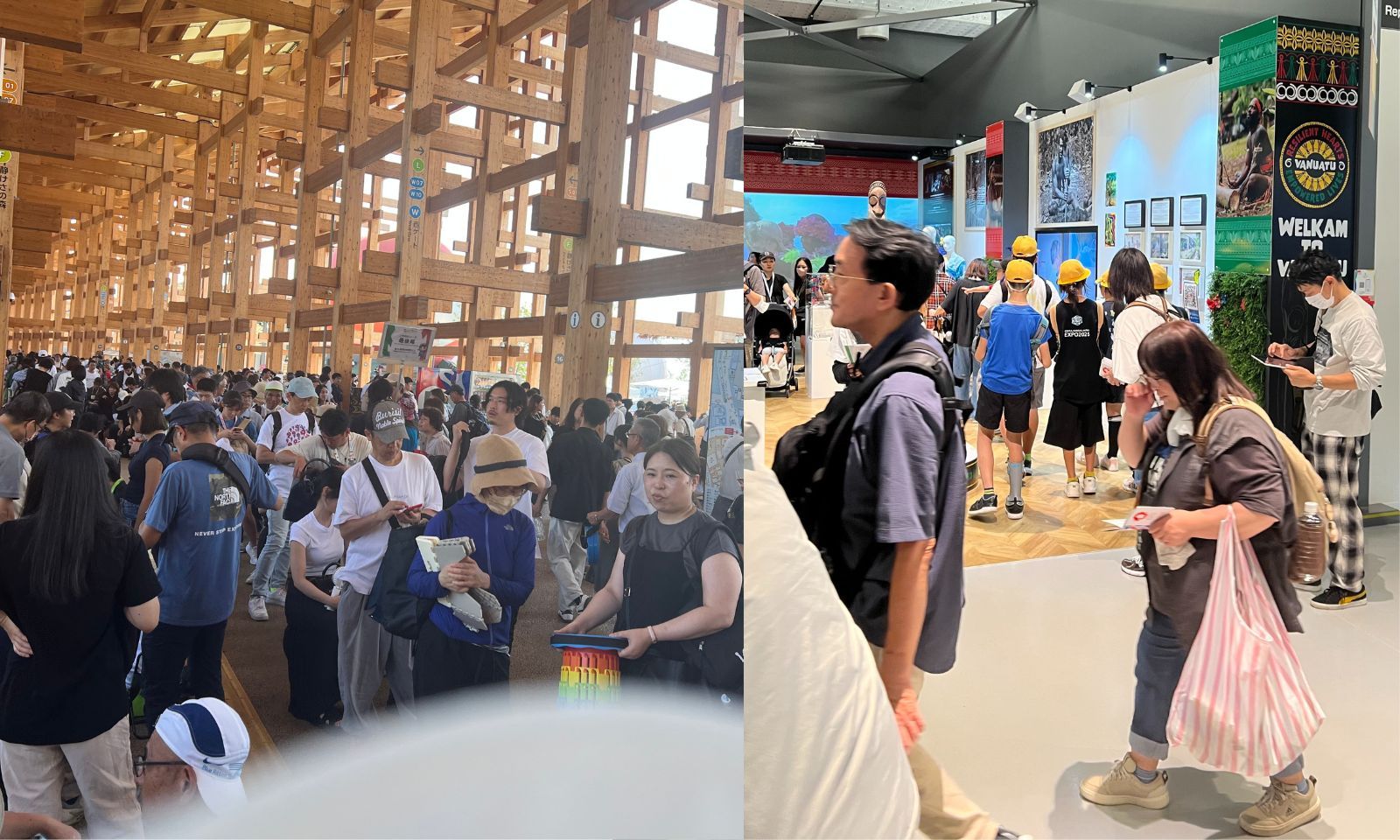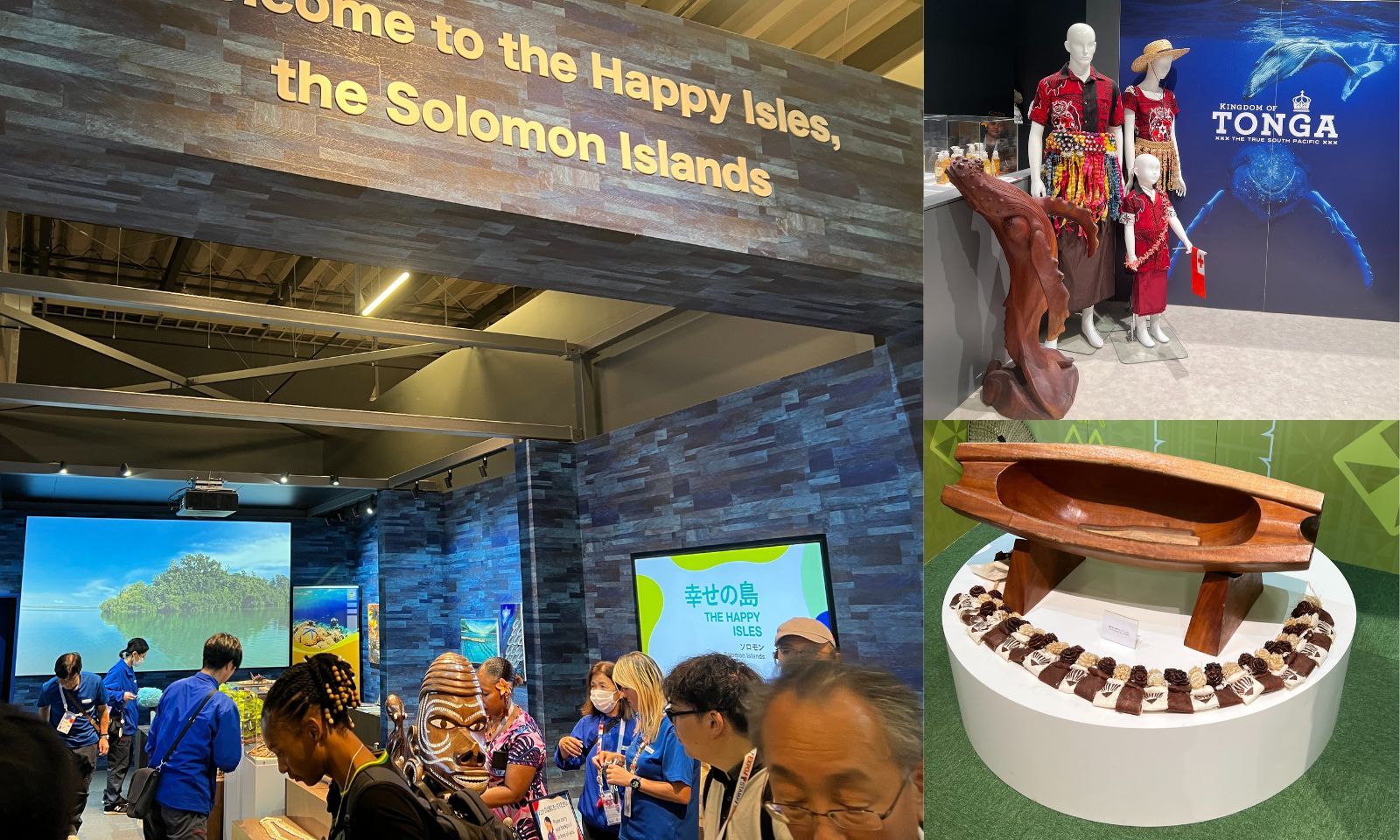

Pacific island nations showcase their culture, resilience, and vision at World Expo.
Photo/PMN News/Christine Rovoi
Pacific makes powerful impact at World Expo
United and proud, Pasifika offer the world a rare glimpse into their cultures and vision.



Pacific comedy web series ‘The School Repeaters’ hits screens


Pacific queens gather in Fiji as pageant spotlight turns on regional issues


NZ-born toddler denied visa despite severe brain injury and faces risk of unlawful status

Pacific comedy web series ‘The School Repeaters’ hits screens


Pacific queens gather in Fiji as pageant spotlight turns on regional issues
The Pacific region is making a strong impression at this year's World Expo in Japan. Countries represented include Papua New Guinea, Sāmoa, Tonga, Tuvalu, Palau, the Marshall Islands, Fiji, the Federated States of Micronesia, Nauru, the Solomon Islands, and Vanuatu.
Representatives from these island nations are showcasing their unity through cultural performances, live shows, and discussions that highlight their shared history, strength, and potential for the future.
Gabriel Dusava, who is leading the PNG delegation in Osaka, says the event is a chance to present their country to the world while focusing on areas like trade, tourism, and investment.
At the Fiji Pavilion, Josua Tuivaga shared how Fijians are demonstrating their resilience, creativity, and rich cultural diversity as a small island developing state (SIDS).
Tuivaga says their pavilion features cultural exhibits and interactive storytelling to engage visitors, and all under the event's main theme, "Designing Future Society for Our Lives".
This is the second time Japan is hosting the Expo - the first was in 1970. A total of 158 countries and regions, along with seven international organisations, are participating in this Expo, which has been happening since April.

Photo/PMN News/ Christine Rovoi
Sachiko Yoshimura, the Expo's Global PR, Promotions and Communications Director General Extraordinary, told journalists that Japan first hosted the event in 1970, and that this year’s event was built atop Yumeshima, an artificial island in Osaka Bay.
Yoshimura says that more than 25 million people have attended, including 3.6 million visitors from other countries, and an estimated eight billion people have watched the event worldwide through various online platforms, including the official Expo website, social media, and potentially internet streaming services. Visitors to the Expo also report live webcam feeds on the official website to those who cannot attend in person.
Yoshimura says the economic benefit of the Expo is estimated at 2.9 trillion yen, which is about $NZ3.4 billion.

Photo/PMN News/Christine Rovoi
She welcomes the participation of Pacific countries, saying they have greatly contributed to the success of the event.
She also praised the nations for "sharing their cultures, stories, and visions for the future". She says this gives visitors a rare opportunity to experience authentic cultures from around the world.
Yap, one of four states in the Federated States of Micronesia, known for its spectacular manta ray diving and ancient stone money, recently completed a month of cultural presentations at the Expo.

Photo/PMN News/Christine Rovoi
Venessa Lauweiraim from Yap's Visitors Bureau described the Expo as a unique chance for people to discover the island's living culture, highlighting traditional navigation practices that have guided Pacific travellers for generations and their ongoing use of stone money in important transactions.
“We’re not just sharing our past; we’re showing how our traditions continue to thrive in modern island life.”
An official at the Tonga Pavilion says their participation continues a proud tradition of World Expo involvement, where they get to share their sustainable way of life and warm hospitality with audiences looking for genuine cultural experiences.
The World Expo Osaka 2025 ends on 13 October. Riyadh in Saudi Arabia is set to host the next event in 2030 with the theme, “The Era of Change: Together for a Foresighted Tomorrow.”